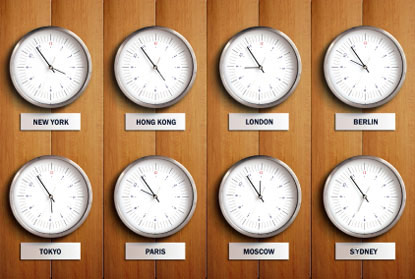Here is a bit of useful information that I would like to pass on:
According to the Bureau of Transportation, US airlines made $2,566,695 in revenue from baggage fees in 2010 alone. But get this: most passengers are paying hundreds of dollars in fees that they could avoid altogether with some advance preparation.
Want to avoid paying an extra $30 to $50 in checked baggage fees, or worse, the exorbitant fees charged for overweight luggage? Follow these 10 tips for avoiding checked baggage fees so you can buy a nice steak dinner with that cash instead.
1. Travel light – and then take only half of what you pack
The best possible way to beat checked baggage fees is to travel light and avoid checking baggage altogether. Use compression bags or packing cubes so that all of your belongings fit into a carry-on suitcase. If you’re an avid reader and tend to travel with several books, you can lighten the load by switching to a digital reader.
2. Fly on airlines that don’t charge for checked luggage
The majority of airlines now charge for checked luggage, but Southwest allows two checked pieces of baggage per passenger and jetBlue allows one checked piece of baggage per passenger. Fly Southwest or jetBlue when possible to avoid paying hefty checked luggage fees.
3. Become a frequent flyer program member and earn as many miles as possible
If you become an elite member of some frequent flyer programs, your checked baggage fees will be waived. For example, US Airways waives luggage fees for preferred members of its Dividend Miles program, as well as for Star Alliance Silver and Gold status members. To earn more miles and reach elite status faster, sign up for credit cards/debit cards that award miles every time you use them and shop with airline partners.
4. Take a digital scale with you on your travels
Using a digital scale will help you avoid overweight luggage fees when you travel. The Balanzza Mini is light, compact, and easy to use, and you can easily store it in your bag.
5. Ship your belongings in advance
Shipping belongings in advance is another way to avoid paying checked baggage fees, although you should only do it if your luggage is relatively light and you’re traveling within the country. For example, if you’re only taking some clothes and other basic items with you, stuff them into a Priority Mail Flat Rate box and ship it to your destination ahead of time.
6. Find out if you qualify for a discount or fee waiver
Many airlines waive checked luggage fees for first class passengers, active duty military members, unaccompanied minors, and certain credit card holders. Find out what your airline’s policies are because you may qualify for a discount or waiver, too.
7. Rent sporting equipment at your destination
Going on a golfing, ski, snowboarding, or surfing trip? To avoid paying exorbitant fees for oversized items, leave the bulky sporting equipment at home and rent equipment at your destination instead.
8. Wear your luggage
You probably don’t want to wear five layers of clothing on the plane because it would be excruciatingly hot, but you can wear your belongings if you use travel clothing, such as the SCOTTeVEST travel jacket, which features 37 pockets and is compatible with the Macbook Air and iPad.
9. Find a hotel that’ll cover the fees
Several hotel chains offer their guests room credits to offset the cost of checked baggage fees. For example, if you show proof of an airline checked baggage charge when you check in at any Kimpton Hotel, you’ll receive a room credit for one bag (up to $25).
10. Choose a lightweight suitcase
Lightweight suitcases are an essential item for anyone who travels frequently, not only because they’re easier to carry, but also because they’ll allow you to fit more in your luggage while avoiding overweight baggage fees. Suitcases made with state-of-the-art materials, like polycarbonate and ballistic nylon, aren’t cheap but they’ll help you avoid overweight luggage fees for years to come.
Source: BestTravelDeals.com






